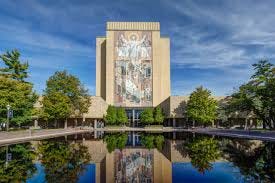Seeking to spread the word about my last commentary of July 14, “On the failure of American Catholicism: Can Catholic higher education renew?”, I submitted a summary and link to the moderators of the Catholic Social Thought, Politics, and the Public Square Facebook group. Upon posting my summary, the administrator of the group, Timothy Kirchoff, replied with the following comments.
Your analysis is well-reasoned, and I can't argue that Notre Dame, along with other modern secular universities, has failed to offer a sufficient critique of our existing systems. I would also admit that, from my perspective as a Notre Dame grad who has had several encounters with the Sycamore Trust, I can't say your impression of them is unfair, though they would probably just say that Notre Dame's commitment to poverty-related initiatives is not under threat.
At least some note should be made that one reason universities cannot offer a good critique of our systems is that they invariably profit f…



